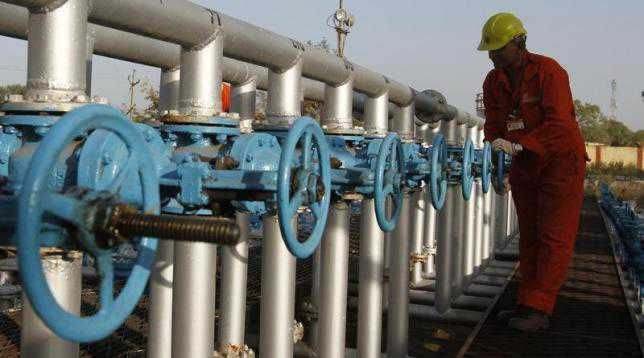US Treasury Calls on India to Uphold Russian Oil Cap
<p>In Washington, a pair of senior officials from the United States Treasury have journeyed to India with the intention of advocating for the maintenance of the oil price restriction designed to curtail profits for Russia, while concurrently advocating for the stability of global energy markets, as per an official statement. Anna Morris, Acting Assistant Secretary […]</p>

US Treasury Calls on India to Uphold Russian Oil Cap
In Washington, a pair of senior officials from the United States Treasury have journeyed to India with the intention of advocating for the maintenance of the oil price restriction designed to curtail profits for Russia, while concurrently advocating for the stability of global energy markets, as per an official statement.
Anna Morris, Acting Assistant Secretary for Terrorist Financing, and Eric Van Nostrand, PDO Assistant Secretary for Economic Policy, are presently en route to New Delhi and Mumbai from April 2-5 to engage with both governmental and private sector entities, the Treasury revealed in a communiqué issued on Wednesday.
Their agenda encompasses discussions on pivotal bilateral matters, encompassing collaboration regarding anti-money laundering efforts and the deterrence of financing terrorism, alongside other illicit financial concerns, in addition to the sustained enforcement of the price cap. This cap is aimed at further curtailing Russia’s gains to finance its unlawful incursion, all the while fostering stability in the global energy market, the statement articulated.
Subsequent to Russia’s invasion of Ukraine in February 2022, the G7 nations, in conjunction with the European Union and Australia, collectively introduced a price ceiling. This ceiling precludes the engagement of Western maritime services, inclusive of insurance, flagging, and transportation, for vessels transporting Russian oil priced at or exceeding USD 60 per barrel.
By 2023, Russia had ascended to become India’s principal oil supplier. India maintains robust economic and defense ties with Russia and has abstained from censuring Moscow regarding its conflict with Ukraine. Morris and Nostrand are slated to deliver discourse on the price ceiling and participate in a Q&A session organized by the Ananta Aspen Centre in New Delhi on Thursday.
As highlighted by Morris and Nostrand in a blog entry last month, the subsequent phase of the price ceiling continues to attain its dual objectives: constraining Russia’s oil earnings while buttressing stability in the energy market, the statement delineated. The selling price of Russia’s oil has markedly diminished since the commencement of the subsequent phase; this alteration reflects the repercussions of global oil price reductions during this period, as well as a considerable augmentation in the disparity in discounts earned by Russia relative to other global oil suppliers, it expounded.
Participants in the energy market, analysts, and even the oil czar of Russian President Vladimir Putin have associated the mounting discount on Russian oil with the augmented enforcement activities of the Coalition, as evidenced by the second phase of the price ceiling, signifying clear confirmation of the efficacy of this subsequent phase, the statement underscored.
The price ceiling is instrumental in upholding a consistent provision of energy to global consumers and enterprises, affording significant importers like India greater leverage to negotiate more favorable terms. Concurrently, the price ceiling, in conjunction with key sanctions enforcement measures, is diminishing Putin’s profits from the sale of said oil, it concluded.








